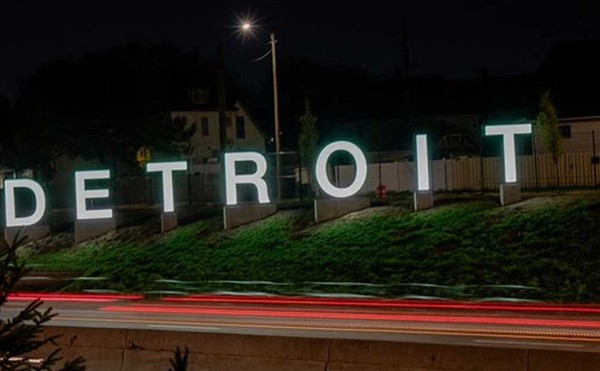With U.S. Bankruptcy Court Judge Steven Rhodes preparing to announce a decision on Detroit's "plan of adjustment" this week, many people are having their understanding of the situation framed by thumbnail synopses similar to this one posted by a local TV station on its website:
"Judge Rhodes can confirm or dismiss Detroit's plan of adjustment based on whether the plan is fair, equitable and feasible for the city to succeed. The plan eliminates $7 billion in debt, cuts pensions to 23,000 Detroit retirees and settles with major Wall Street creditors with claims of more than $2 billion, giving them 13 cents on the dollar."
To an extent, that sort of journalistic shorthand is understandable. Even with the judge's ruling now just days away, the numbers, as one attorney involved with the case observed, "remain slippery."
But here's what's really being missed in most snapshot explanations of Detroit's bankruptcy: the unprecedented hit being taken by retirees who believed that, after working throughout their lives, they would be secure in their old age.
Let's begin with the biggest number of all: $18 billion in debt and liabilities owed by the city at the start of bankruptcy.
From the start, that figure has been a fiction, pumped up by Emergency Manager Kevyn Orr and crew to help ensure Detroit was declared eligible for bankruptcy. And, from the start, it was clear that Orr saw it as his mission to go after — rather than protect — pensioners.
In fact, it was lawyers from Orr's former firm, Jones Day, who laid out the legal framework for using Chapter 9 bankruptcy as a way for cities and other units of government to shed pension obligations. Now, with Jones Day playing the lead role in representing the city during bankruptcy, Detroit turned out to be the place where the theory of pension vulnerability was put to the test.
This is the result: Despite having the protection of public pensions etched into the Michigan Constitution, it is retirees who, by far, are the ones bearing the financial burden of Detroit's bankruptcy.
Forget for a moment that the assertion that Wall Street creditors are getting just 13 cents on a dollar fails to take into account the Joe Louis Arena property, Detroit-Windsor tunnel revenues, and other revenue-generating properties that are also part of the settlement, substantially reducing the financial hit those Wall Street creditors are taking – even though, at least in theory, bankruptcy is supposed to shield the city from relinquishing assets to satisfy creditors.
The real story of Detroit's bankruptcy is the unprecedented hit retirees are taking.
If the plan of adjustment is approved by Judge Rhodes, about $7 billion of the $18 billion in liabilities will be trimmed in bankruptcy, according to the most recent news accounts. Of that $7 billion, it appears as if nearly 80 percent is being taken from retirees.
Because the numbers are indeed slippery, it is not possible to put an exact figure on how much of that is going to come out of the pockets of retirees. It is possible, however, to get some idea of how much they are going to be hurt financially.
The biggest hit comes in the form of health care cuts, which have already been instituted as a result of actions taken by Orr. Instead of being enrolled in health insurance plans where they pay 20 percent of the cost and the city picks up the rest, the vast majority of retirees are now receiving $125 monthly stipends (some, such as police and firefighters injured on the job, receive as much as $400.)
That reduction is the single largest "debt" the city will be shedding – about $4 billion.
As a result, retirees have seen their insurance costs skyrocket.
Cecily McClellan, who spent 18 of her 23 years with the city working at the health department, says she's seen her health care costs jump to about $500 a month.
"If nothing changes," McClellan says, "this will be devastating. Many people who thought they had a decent nest egg are going to find themselves living in poverty."
On top of the health care cuts, general retirees, whose pensions average around $19,000 a year, will also suffer a 4.5 percent reduction in their pensions. Police and firefighters, because they aren't eligible for Social Security, will see no cuts to their current pensions. Both groups, however, will be hit hard by reductions to annual cost of living (COLA) increases.
Though this fact tends to receive little coverage in the media, the consequence is significant.
According to a report produced by Kim Nicholl, an actuary who advised the Retirees' Committee appointed by Judge Rhodes, the COLA cuts will reduce future payments to general retirees by about $616 million, and to police and firefighters by some $688 million, for a total of more than $1.3 billion.
Finally, there's the recoupment of alleged interest overpayments into annuity savings accounts that many city workers contributed to as part of their retirement planning. That so-called "claw back" will take more than $190 million from retirees who participated in the program from 2003 to 2013. The money will be deducted from future pension payments.
"The way I see it, I'm getting hit four different ways," says Belinda Myers-Florence, who worked for the city more than 35 years. "They've taken my medical care; there's the annuity savings recoupment; they're taking away the cost of living increases; and there's the 4.5 percent reduction to my pension.
"When I take the time to talk to people and tell them what's really happening, they say they had no idea."
One of the people who has been trying to raise awareness of the bankruptcy's real impact is William M. Davis, president of a group known as the Detroit Active and Retired Employee Association. Davis has been peppering the bankruptcy court with objections to the plan.
Davis, who spent 34 years working for the city's Water and Sewerage Department, knows the deck is stacked against him at this point. Nonetheless, he and members of his group continue to meet weekly and strategize about what their next steps might be.
A lawsuit challenging the bankruptcy court's decisions is a possibility, he says. But doing so will be difficult because potential allies — ones with pockets deep enough to pay the massive legal bills that would accompany a legal challenge, such as unions representing city employees — agreed not to pursue an appeal as part of settlement agreements.
As bad as this deal is, they figured, it might have been worse. Orr threatened that pension cuts could be as high as 27 percent if a settlement — one that included more than $800 million from the state, private foundations, and the Detroit Institute of Arts to cushion the blow to retirees — wasn't agreed to.
One possibility, says Davis, is that retiree organizations from elsewhere in the country might come to their aid in an act of enlightened self-interest.
The ruling by Rhodes that public employee pensions could be reduced in Chapter 9 bankruptcy was a "landmark decision," says John Pottow, a University of Michigan Law School professor who specializes in bankruptcy.
If Detroit's plan of adjustment is approved as it currently stands, says Pottow, "it could well be a blueprint for other pension-choked cities."
For the retirees who worked for decades believing their futures would be secure, that's painful news to swallow.
Curt Guyette is an investigative reporter for the ACLU of Michigan. His work, which focuses on Michigan's emergency management law and open government, is funded by a grant from the Ford Foundation. You can find more of his reporting at aclumich.org/democracywatch. Contact him at 313-578-6834 or [email protected].





